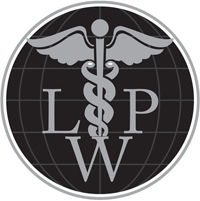SAN DIEGO – Prior beta-blocker use may improve outcomes following insular ischemic strokes, according to a prospective, observational study of 1,014 consecutive stroke patients at Massachusetts General Hospital in Boston.
Favorable outcomes, defined by modified Rankin Scale (mRS) scores of 0-2 at 3 months – occurred with significantly greater likelihood among patients with infarcts of the insular or surrounding opercular cortex who used beta-blockers (BBs) within 24 hours before stroke onset, after researchers controlled for underlying cardiovascular and other risk factors on multivariate analysis (odds ratio, 2.21; 95% confidence interval, 1.03-4.75; P = .04).
“A lot of people have studied the effect” of BBs on stroke, and have found that “indiscriminate use in acute stroke patients is not beneficial, and may be associated with harm,” said senior author Dr. Hakan Ay of the departments of neurology and radiology at Massachusetts General.
But previous studies lumped strokes together, regardless of infarct location. “This is the first study that links response to a specific brain site. What this tells us is if you find the right patient, you can get benefit” from BBs, although the finding must be confirmed by randomized trial, Dr. Ay said at the International Stroke Conference, sponsored by the American Heart Association.
The 402 BB users and 612 nonusers in the study, about evenly split between men and women, were admitted within 3 days of stroke onset.
BB patients were older (mean 74 years vs. 65 years) and more often had risk factors such as coronary artery disease (33% vs. 13%), atrial fibrillation (40% vs. 17%), and heart failure (12% vs. 4%).
The National Institutes of Health Stroke Scale score was higher in the BB group (mean 5 vs. 3). Twenty-three percent of BB patients and 18% of nonusers got intravenous thrombolysis (P = .06).
Overall, about two-thirds of patients in the study did well, with mRS scores of 0-2 at 3 months. BB patients did a bit worse, with just 57% achieving the score. Univariate analyses revealed a decreased probability of good outcome in the BB patients, as expected given their poorer baseline health (OR 0.72; 95% CI 0.55-0.93).
After adjustment for that baseline difference on multivariate analysis, prior BB use did not predict good or bad outcomes when all strokes were considered (OR 1.33; 95% CI 0.90-1.96; P = .16), which might indicate that while insular patients seemed to benefit, prior BB use may have contributed to worse outcomes in other stroke types, Dr. Ay said.
The benefit emerged when multivariate analysis was limited to BB patients and nonusers who had insular strokes. The investigators did not report how many were in each group.
There’s biological plausibility for the finding; insular injury is associated with autonomic dysregulation, leading to increases in blood pressure and other problems that likely affect outcomes. BBs might moderate the effect, Dr. Ay said.
The investigators had no relevant disclosures. The work was funded by the National Institute of Neurological Disorders and Stroke.
Picture Courtesy of Wikipedia


